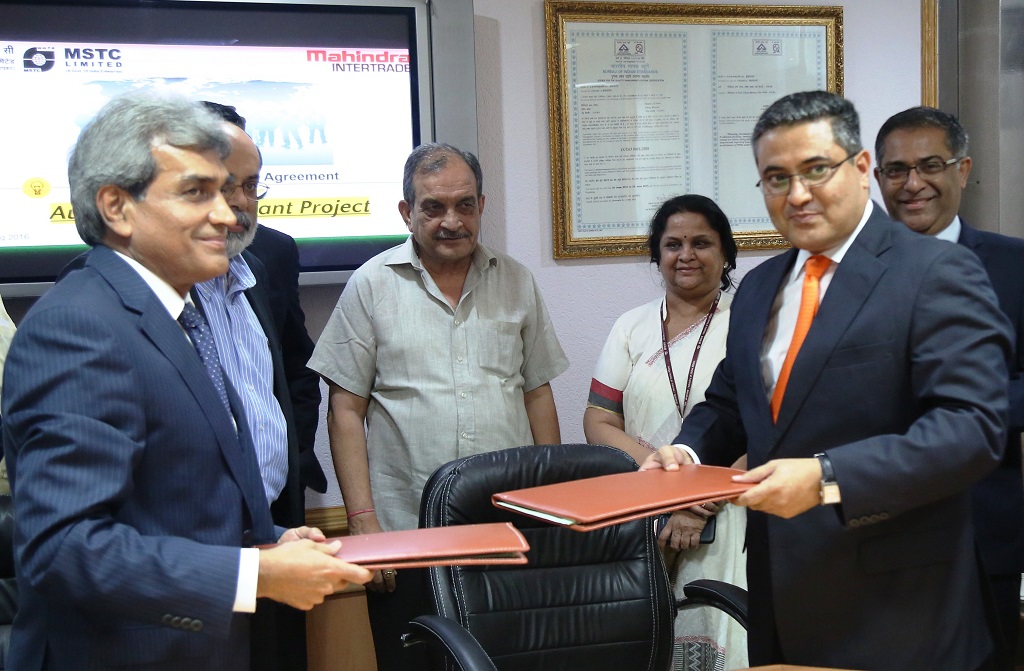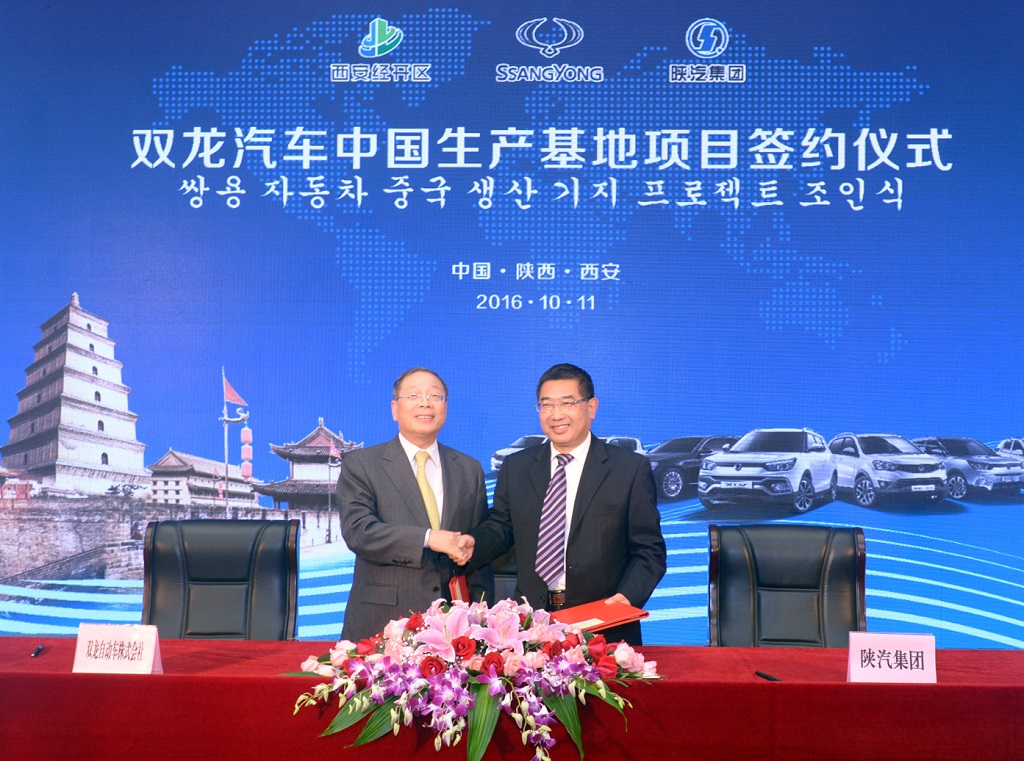- India’s First Greenfield Auto Shredding Facility to commence full operations by Early 2018
- Gujarat and Maharashtra shortlisted as probable locations for the first facility
Mumbai, August 08, 2016: Mahindra Intertrade Ltd., a part of the Mahindra Partners Division of the $17.8 billion Mahindra Group, and MSTC Ltd. (a Government of India enterprise) today signed a formal joint venture agreement to set-up India’s first-of-its-kind Greenfield auto shredding and recycling capability. The joint venture agreement was signed under the aegis of the Honorable Minister of Steel and Mines, Shri Chaudhary Birender Singh. The Secretary Steel (Government of India), Dr. Aruna Sharma, graced the occasion, while senior management from the Mahindra Group – Zhooben Bhiwandiwala, Managing Partner, Mahindra Partners; Sumit Issar, Managing Director, Mahindra Intertrade Ltd. (MIL), and Shri B. B. Singh, Chairman & Managing Director, MSTC Ltd. were also present along with other dignitaries.
This first-of-its-kind in India auto shredding facility will establish an Integrated Automotive Recycling capability for end of life vehicles – from collection, compaction, transportation, depollution, dismantling, shredding, recycling, and disposal. This JV is a significant first-step towards ensuring that end-of-life vehicles (ELVs) are recycled in a sustainably responsible manner, with the aim of 100% recycling of all materials. State-of-the-art, high-tech shredding and sorting equipment to meet global standards will ensure that the scrappage of vehicles is carried out in an environment friendly manner as per guidelines released by the MoEFC (Ministry of Environment, Forest and Climate Change) and CPCB (Central Pollution Control Board).
The concept of vehicle scrapping is still new to India as compared to the West. While the number of vehicles has increased substantially over the last two decades, there is no recycling or scrapping provision in place to deal with old and discarded vehicles. While Gujarat and Maharashtra have been shortlisted as probable locations for the first integrated facility, the JV will from commencement have an all India footprint for collection/dismantling of vehicles. Given the scale and size of the project, it aims to provide eco-friendly disposal of end of life vehicles, apart from creating a brand new Industry and multiple growth opportunities. It is anticipated that this JV will establish its presence across the country to tap into the large reservoir of ELVs, while initially establishing its mother facility in either Gujarat or Maharashtra.
Shri B. B. Singh, Chairman & Managing Director, MSTC Ltd. said, “India does not have any modern auto shredding plant as of now. MSTC-MIL will have a good partnership going ahead. We are sure of setting up a world class facility which will go a long way in recycling of ELVs and reduce dependence on mining iron ore and other resources. Apart from savings on forex as a result of import substitution of scrap, this JV would also contribute to India’s COP21 commitments.”
“Mahindra is pleased to embark on this socially progressive initiative with MSTC, to ensure responsible recycling of automobiles in India. We are very encouraged by the support we have received from both the Central and State governments, through appropriate policy announcements, and are committed to establish global standards for this critical industry, which will transform the way automotive scrap is effectively recycled in a sustainable manner, said Zhooben Bhiwandiwala, Managing Partner, Mahindra Partners.
According to Sumit Issar, Managing Director, Mahindra Intertrade Ltd., “Auto Recycling, if implemented as per global standards, is not only environment friendly but also saves energy costs and minimizes the reliance on alternate resources. Every tonne of new steel manufactured from scrap steel saves a substantial amount of iron ore, coal, electricity and limestone. This initiative would also lead to forex savings. Secondary steelmakers in India import more than 5 million tonnes of scrap a year for recycling into finished steel. The locally available scrap would help reduce their cost of production considerably, while hi-tech shredding using better technology and machinery would help the country significantly reduce pollution.”
Given the new stricter norms related to road worthiness of automobiles and recent NGT guidelines, a huge number of vehicles are expected to come under the end-of-life category in India.


